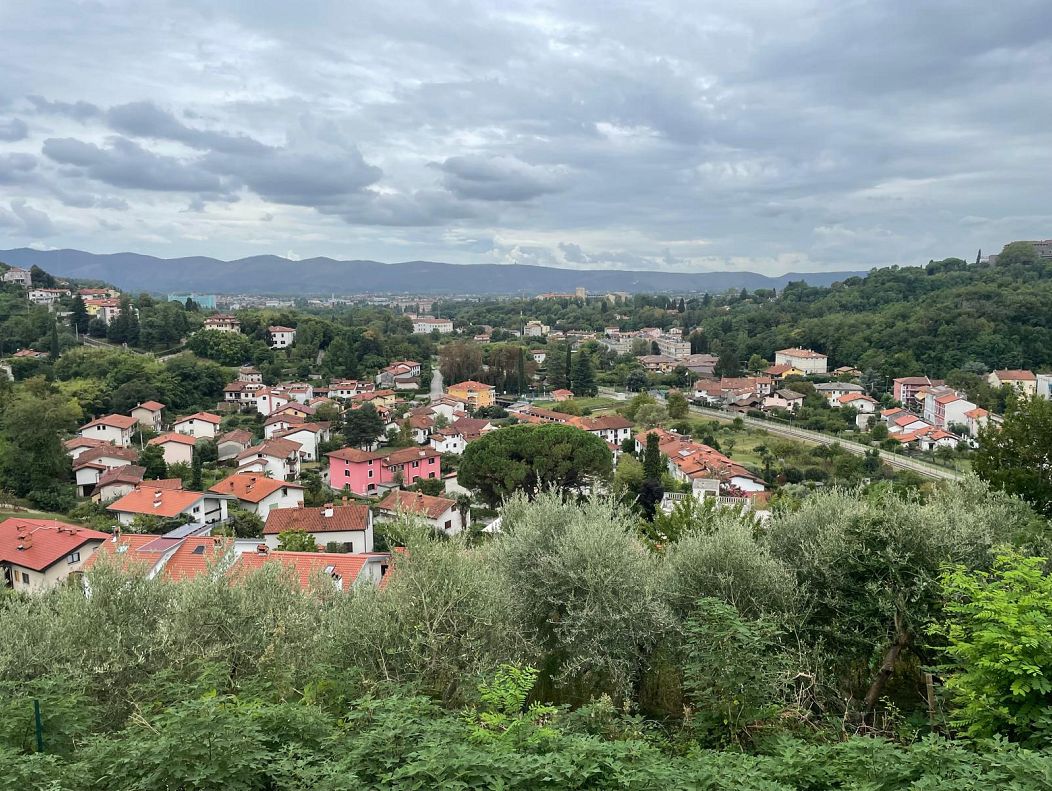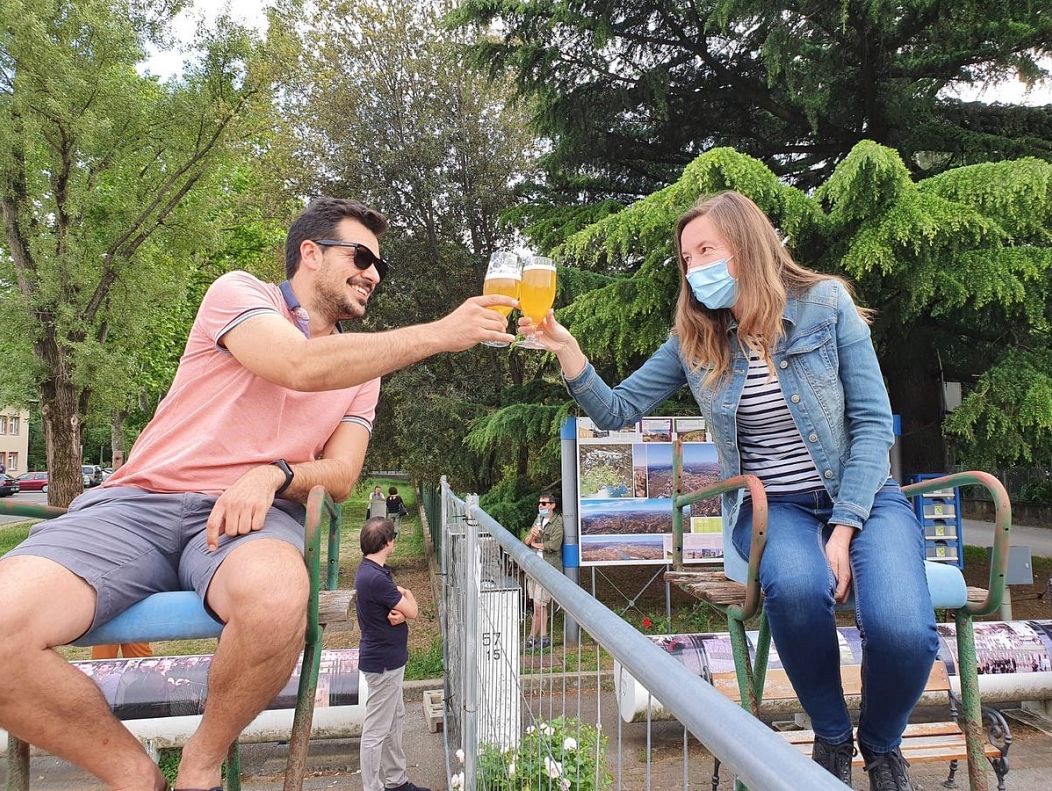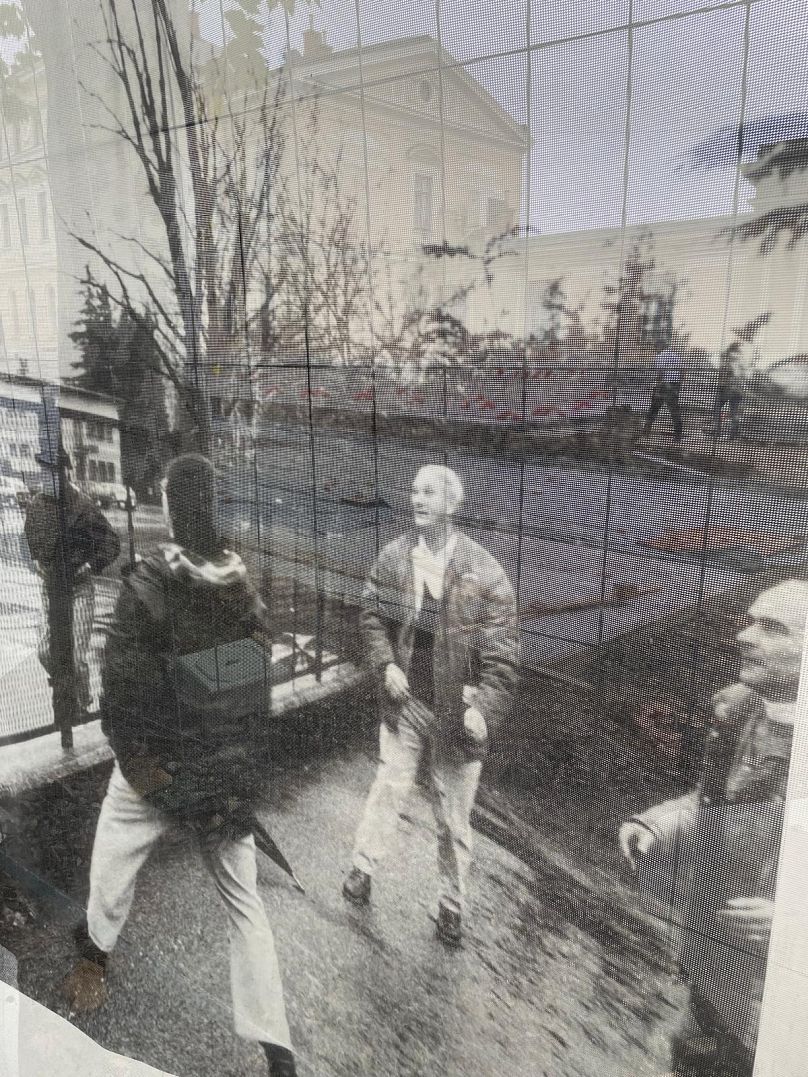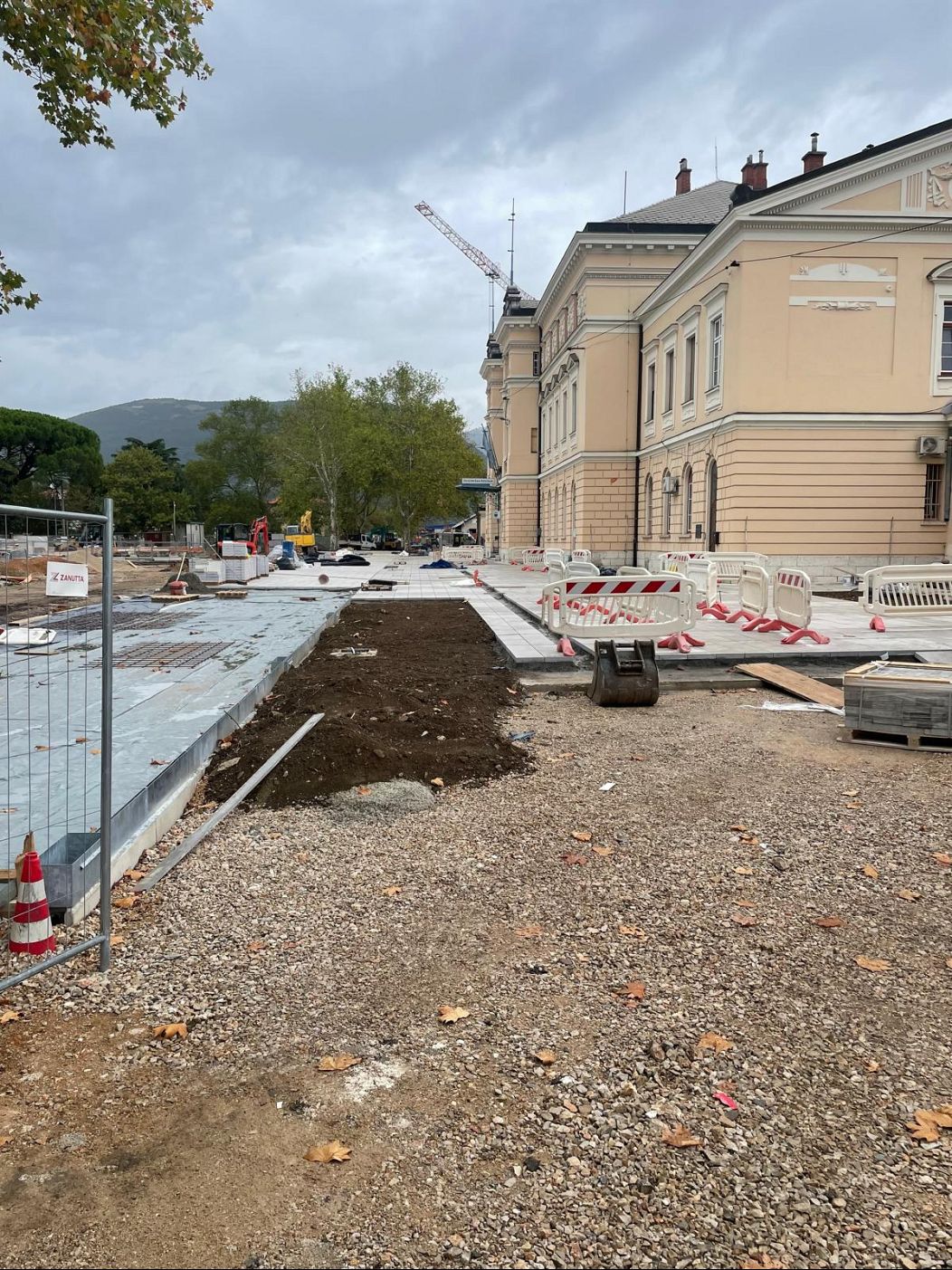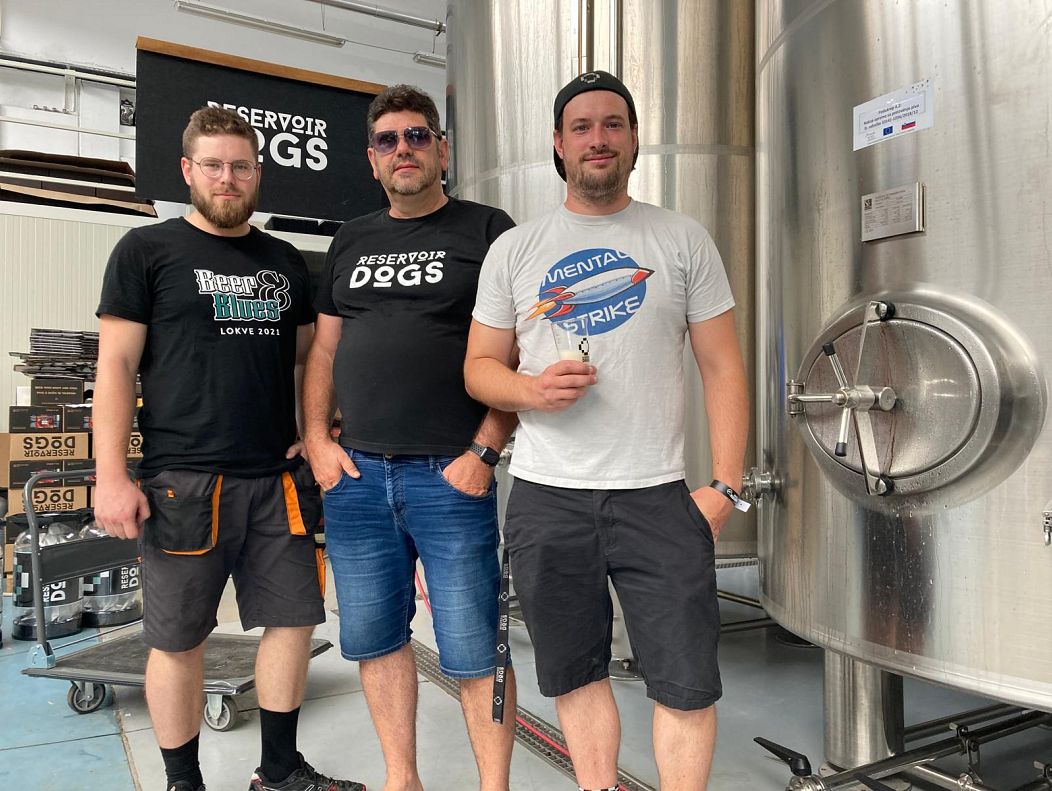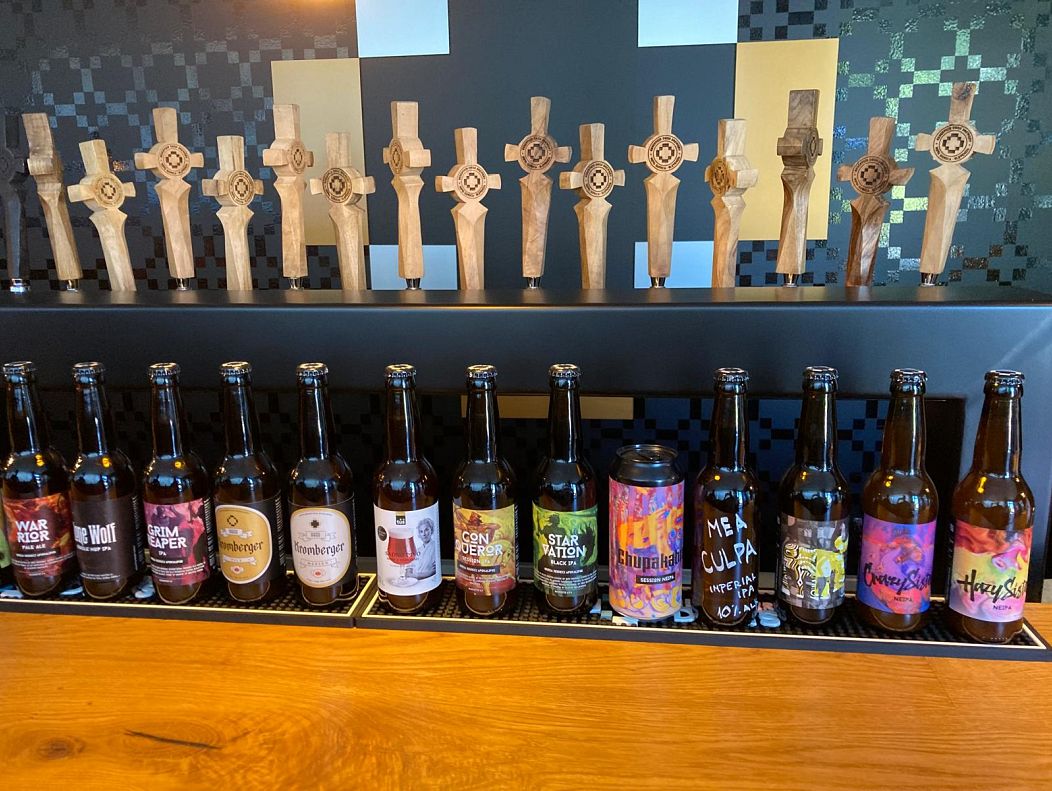Nova Gorica 2025: Introducing the first cross-border city of culture
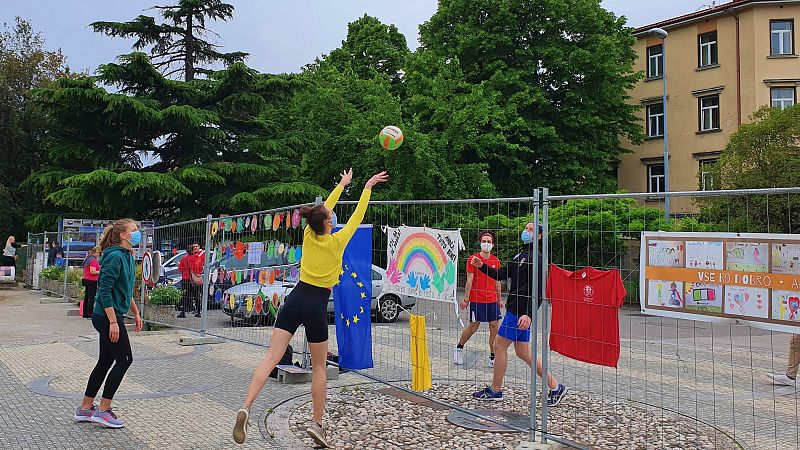
Big project administration is challenging even in the best of circumstances. So when the Slovenian city of Nova Gorica announced its candidacy for European City of Culture 2025, the fact that half the city is actually in Italy and has a different name was a unique hurdle, but one that ended in success. And with just over a month until the red-letter year begins, cooperation is looking as good as the hugely eclectic programme.
Both sides of the city have proved in the past that they have the energy for such cooperation. One only has to glance back to 2020 to see how, in a city segregated by an imposed COVID border fence, both Slovenians and Italians used the very thing that separated them as a tool to show their togetherness.
"We organised volleyball on both sides of the fence and people were playing across the volleyball," explains Andreja Agrež, head of marketing for Slovenia's 'GO! 2025' campaign. "There was a borderless bar and there was one chair on the Italian side and one on the Slovenian side and there were people drinking coffee, getting it through the net. It was very, very emotional being there every day because the families that used to see each other every day, even grandparents, grandchildren, couldn't see, couldn't touch except through the fence because it was literally closed for months."
"When the project started it didn't seem so unusual, because from the start it was originated in Slovenia and in Italy," says Agrež. "So from the start, the first paper writers started speaking to authorities in Slovenia and Italy, but after that, comparing to other cities of course in Slovenia and other nominations, of course it was very unorthodox in that sense.
The fence went up in 2020 while the city was still very much in the candidacy stage, and although there was enforced separation, cooperation between the two administrations in the face of the pandemic became a building block for cultural success.
"There's always a specific topic that needs to be addressed," Agrež goes on. "And at that time in 2020 it was the borders that came up due to COVID that had to be addressed, and that's why it was sort of natural that it made sense that Nova Gorica together with Goriza got the one nomination.
Programme for 2025
Work is visibly underway in Nova Gorica as the deadline looms large. The mainline rail station will be a central space throughout the GO!25 festivities which opens with 'Station to Station' on the Slovenian cultural holiday of 8 February.
The ambitious programme includes contemporary art exhibitions, film festivals, dance performances, an eclectic music programme as well as lectures and workshops on technology and innovation. Moreover, a wider programme with partners just across the border in Italy under the mantle of GO! 2025 & Friends includes such luminaries as Alanis Morissette and Thirty Seconds to Mars.
"I think it's also very lucky for us to be cooperating so closely with Italians on this," says Agrež. "We are funding most of the official programme, there's a lot of supporting programme that the funding comes from the Italian side, specifically from the region Friuli Venezia Giulia and that helps our project a lot, but also in part when we are doing this big 'stop the city' moments like the opening ceremony, the March of Friendship, these are all being very strongly co-funded from both sides of the border and that helps the project to grow."
Beer continues to inspire cooperation
Since brewing was such a big part of 2020's COVID border sharing, it's fitting that two breweries, one from each side of the border, are collaborating.
The Borderless Golden Ale partnership project has been developed by fabulous local brewery Reservoir Dogs alongside Italian counterparts Antica Contea from across the border in Gorizia.
These hop-obsessed mavericks embrace the latest technology to harness their eccentric vision for brewing but they also use designs from local artists to adorn their many cuvées, fostering a sense of community. Their nicely decked-out Tap Room has no fewer than 15 beers on draught and a seemingly limitless number of bottled beers, stouts and ciders. During festivals in the city, the bar is so long that some beers are being sold from the same bar in different countries.
They use the latest key keg tech, have their own automated Isobaric bottling line and a chilled warehouse for storage. Oh and a beer garden.
Outside of the celebrations, the European City of Culture award is very much about legacy. And here in the two-nation city, building a future together is going to be an enormous focus.
"It is a huge challenge," admits Agrež, "which it would be in every case, you know you're speaking about two different countries and of course every country has their own specific rules. But that's why even throughout this project there is a strong will that we try to make everything easier, especially for everyday people's lives...but then also on the business side, on the project side, how to make it easier to unify these processes. This is what we are really doing through some of our projects and we are hoping that this will be like a starting moment that other things develop out of as well and make everything easier for everyone in this region."
Today


